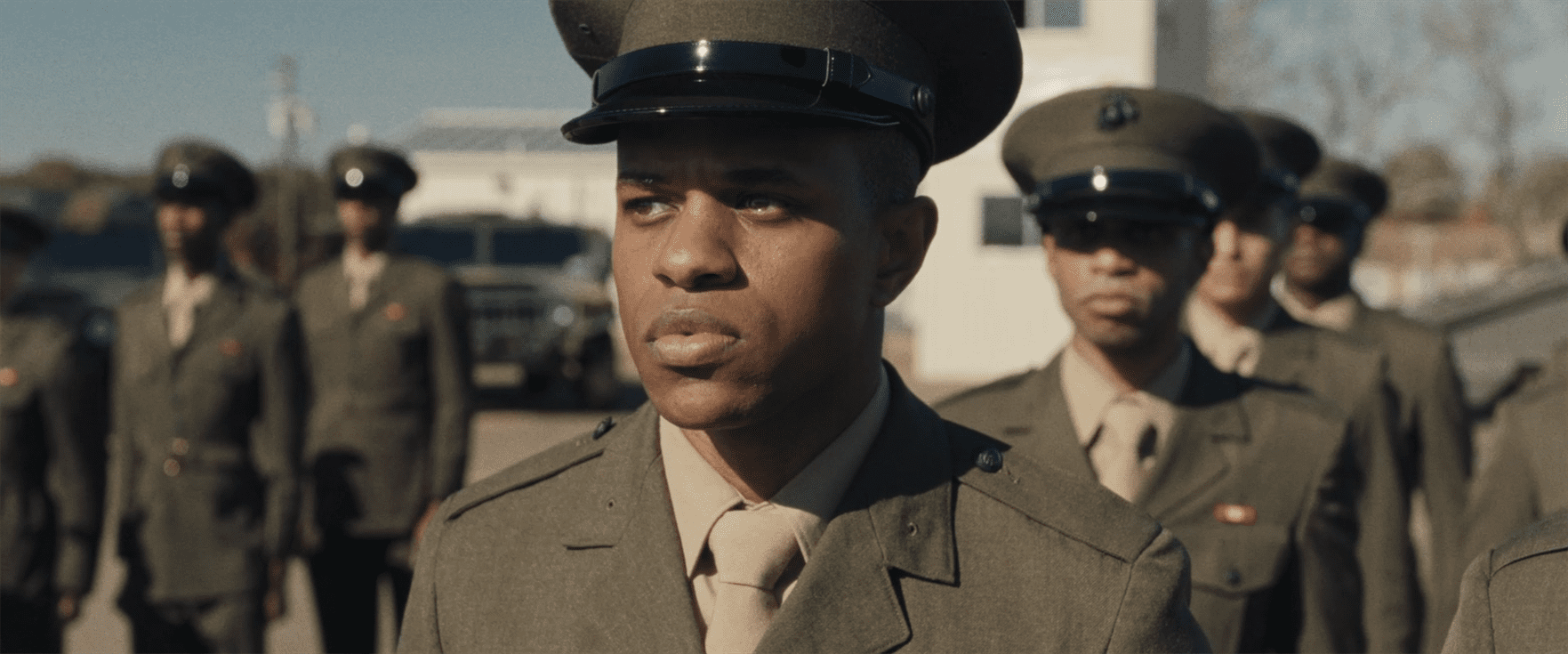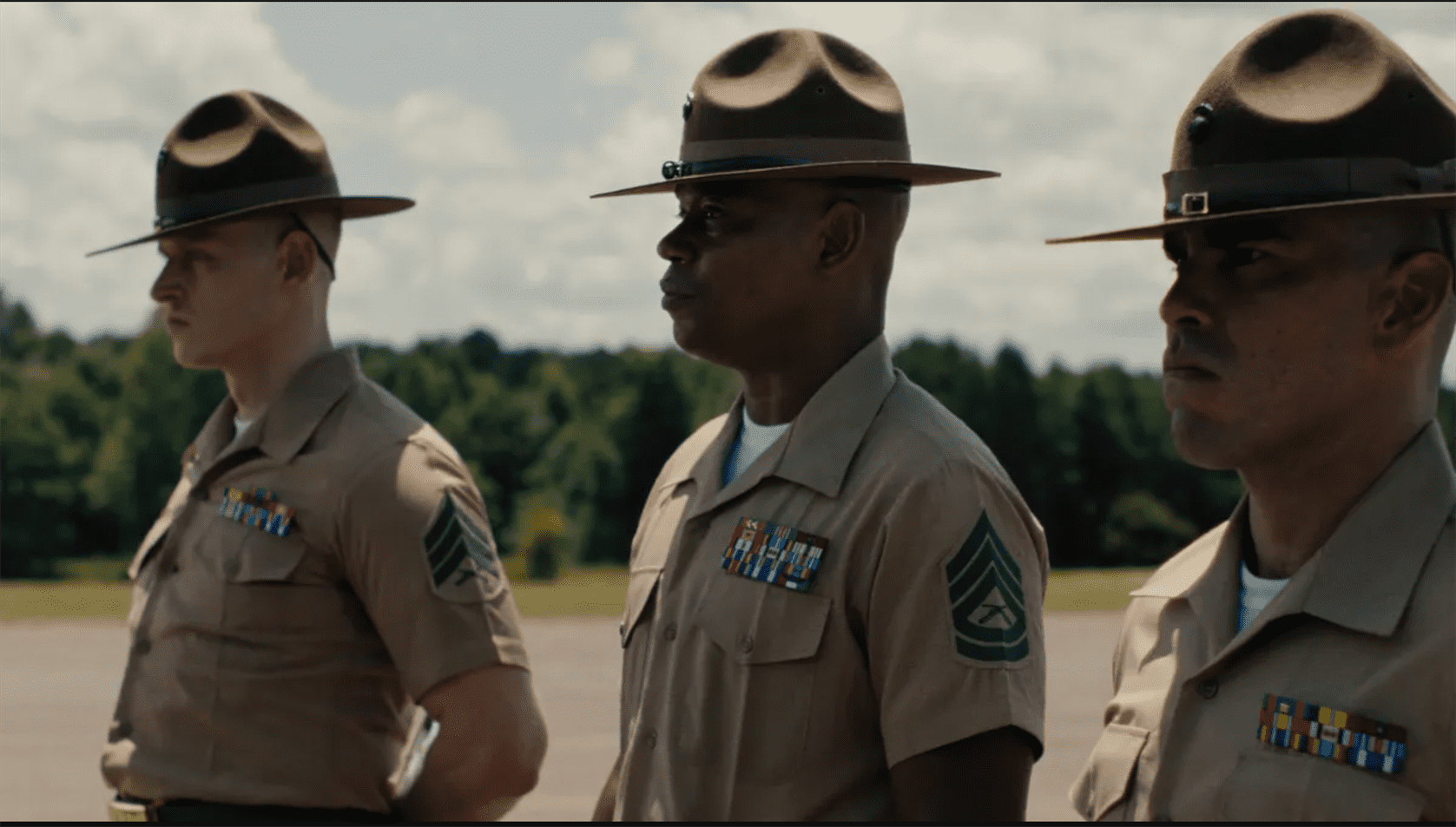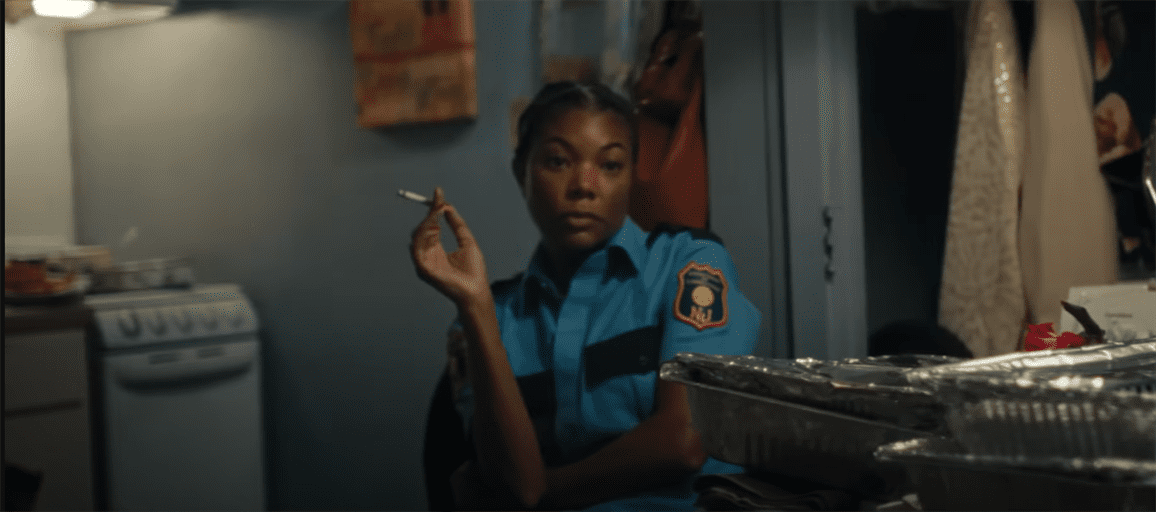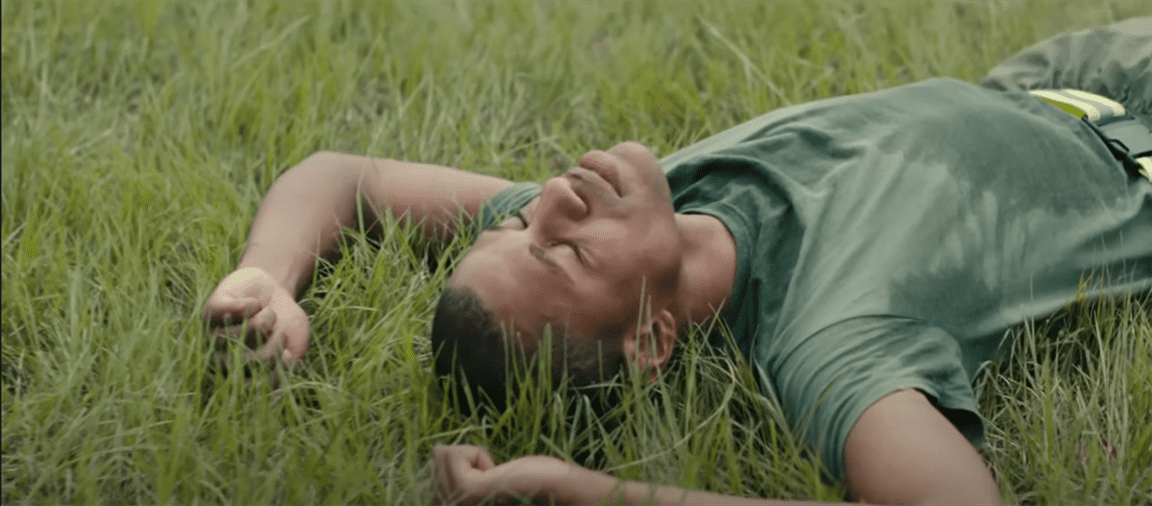Stories about the LGBTQIA+ community have always had a profound effect on society as a whole, and “The Inspection” resides greatly on that list. The film personally delivers a devasting, emotional narrative that showcases the brutal journey of joining the army as a queer individual.

Jeremy Pope leads the ensemble with grace and humility.
Photo courtesy of A24
The film centers on Ellis “Frenchie” French (Jeremy Pope), a gay, homeless young man and his journey through boot camp in the year 2005. Years after being rejected and kicked out by his mother, Inez (Gabrielle Union), for being gay at an early age, Ellis returns home to northern New Jersey to retrieve his birth certificate before enlisting himself in the Marine Corps.
As he enters boot camp, he successfully masks his sexual orientation. However, as the film progresses, Ellis’ identity is accidentally revealed, and he then faces undesirable actions from his troop, including his commanding officer, Sergeant Leland Laws (Bokeem Woodbine). With the help of his other commanding officer, Sergeant Rosales (Raul Castillo), Ellis overcomes all physical obstacles and hateful prejudices with heavy persistence and great empathy.
Beautifully written and directed by Elegance Bratton, the film fictionally recreates his personal experience with a tentative view. Bratton tenderly captures the treatment of homosexuality in the Marine Corps with such care while shattering the audience’s hearts with the earnest truth. Some sequences are heartbreaking to watch, and somehow, it evokes a certain pugnacious attitude in some viewers, as if they are experiencing unjust prejudices themselves.

Pope (left) displays a headstrong expression that contrasts perfectly with Woodbine's (right) callous persona.
Photo courtesy of A24
Another great direction from Bratton is his usage of cinematography. The film contains some of the most mesmerizing, anamorphic shots that feel so immersive and refreshing — a calming transition between the storms of truth. There is one sequence where the recruits rest on the grass after a hard day of training, which cinematically spotlights the expressive sense of relief for the viewers.
Beyond the scope of Bratton’s outstanding directions, Pope’s committed performance is the drive for the film’s engagement, leading the ensemble with such grace and integrity. Everything Pope puts on display is astounding, such devotion to make Ellis complex, empathetic and a true hero to root for. At times, his acting feels so realistic to the point where his deliveries and facial expressions are gut-wrenching and devasting to watch. The particular scene where Ellis reveals his reason for enlisting really demonstrates the emotional range Pope possesses. That alone marks a memorable showcase for Pope’s career; truly, he is a revelation.

The ensemble does an outstanding job of creating obstacles and guidance for the film's protagonist.
Photo courtesy of A24
The supporting cast is also deserving of praise as they are the strong foundation for Pope’s pitch-perfect performance. Both Woodbine and Castillo bring their best to the table, displaying an intriguing dynamic for the film’s protagonist. Woodbine’s cold-hearted expressions contrast greatly with Castillo’s empathic candor, presenting a distinctive experience whenever their characters interact with Ellis.
However, Union’s portrayal of a stone-cold mother is a superb supporting performance of the film (maybe even the year). Her presence as a motivated antagonist creates a looming uncertainty for Ellis. Union’s sharp and harrowing delivery charismatically complements Pope’s innocent persona. Their chemistry on the scene is intense and tragic — a true example of parental rejection. With only four to five scenes in the entirety of the film, Union impressively captures the audience’s attention and breaks their hearts without asking for permission.

Gabrielle Union’s portrayal of a stone-cold mother is a superb supporting performance.
Photo courtesy of A24
The ending of the film is another excellent achievement, concluding with such a desolating feeling, yet hopeful and uplifting for Ellis, creating a pure bittersweet resolution.
Where the film really has issues is its dissection on the subject matter; it plays a bit safe and similar. Some great moments capture the essence of its theme, but the film could have been riskier instead of only drilling an inch deep beneath the surface. The mistreatment of homosexuality is worth a deeper dive, yet the film opts for a safer route. Plus, some minor unresolved conflicts do not have a proper pay-off, leaving the film a bit unfinished when the credits roll.
Nonetheless, “The Inspection” is a powerful statement about identity and self-determination, elevated greatly by its magnificent cast and extraordinary pacing. Not to mention, the film is a fantastic directorial debut for Bratton, a crowning achievement. While minor flaws may hinder the film from perfection, “The Inspection” still stands firm as a worthy examination of unjust homophobia in the army that will shatter viewers’ hearts.



